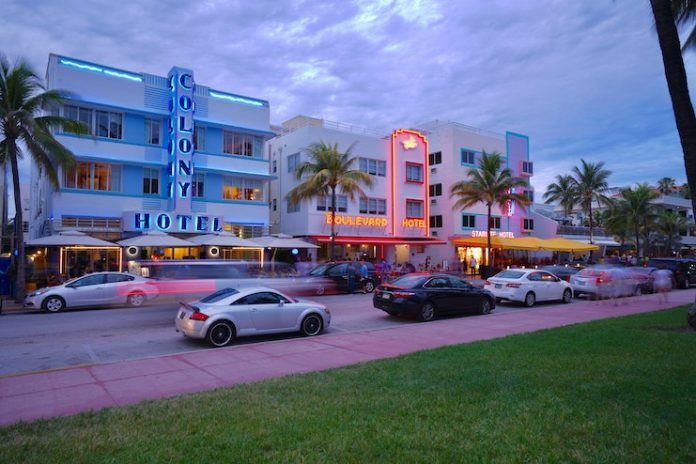While watching the novel coronavirus and subsequent pandemic work its way across the globe, it was incredible to see the speed with which travel and tourism—one of the world’s largest industries—ground to a halt.
Just weeks ago, hotel industry data collectors and prognosticators were developing models that forecasted 15 percent, 20 percent, and 25 percent revenue declines. As we all know now, those numbers ended up closer to 80 percent and COVID-19 has left a devastating wake, with a majority of hotels either closed or operating with single-digit occupancies.
As it turns out, a fast-spreading, deadly disease that requires strict travel policies is one of the worst things that could happen to global lodging demand. When the majority of the world’s population suddenly stops congregating and conducting business, traveling only when absolutely necessary, hotels become an afterthought.
Operating on thin margins already and often with high debt, many hospitality businesses will not survive the blow to their profit-and-loss statements. As Ashford Hospitality Trust CEO Monty Bennett summarized recently: If hotels beat budget by 10 percent they’ve done exceptionally well; if they miss budget by 10 percent, things get exceptionally tough.
This meant that as COVID-19 spread, hospitality leaders were forced to make many tough decisions at warp speed with little visibility. The reality is, hotel businesses still don’t know when they’ll see the light at the end of the tunnel and just exactly what a recovery will look like. However, travelers will come back eventually, so hoteliers must do whatever they can to help the industry recover and get their teams back in place.
This Recovery Will Be Different
Much can be gained from comparing the current COVID-19 crisis to past recessions and their effect on travel demand. Post-9/11, when planes were grounded for about a week, terrorism concerns among Americans left many afraid to travel. After the financial collapse in 2008, corporations were chastised for planning offsite events after many received government bailout money. Both events sent hotel revenues into a tailspin.
The unique challenge this time around is that the severity won’t be fully realized until the spread of the virus is under control. U.S. hoteliers can look to China, where two months after the disease first emerged, there are very few new cases being reported and, as fears lessen, Chinese residents are starting to get back on the road. But many countries are still attempting to predict when the peak will hit.
Americans find themselves presented with a unique situation: balancing public health with the health of the economy. And, like many other things in the current environment, it has polarized many to the point where considering ways to save the economy can seem disrespectful to those most concerned with saving lives.
In reality, the health of both people and the economy is not mutually exclusive. Hoteliers must immediately begin focusing discussions on a united, combined effort to be leaders through the global economic recovery. Get in front of government leaders today and discuss how to help communities in the short term. Simultaneously, start talking about what a recovery plan looks like. Once this virus is under control, how can the industry encourage Americans to start conducting meetings and taking trips again? How do we ensure the American public that entering hotels is safe? Is there enough financial support available to allow us to bring back the majority of our workforce?
While hoteliers shift business priorities to remaining afloat over the next few months, the industry can also come together to tackle these broader economic issues.
Pivot to Remain Relevant
As we all collectively gather our breaths, it has become clear that it doesn’t benefit anyone to panic and become paralyzed by the situation. Tomorrow is a new day, and we can only control how we get better each day.
Hotels that have the ability to remain open with a skeleton crew have done amazing things in their community—converting into temporary hospitals, housing first responders, providing meals, and even becoming a community center for resources like produce and toiletries.
Others are using this slight pause in business to look introspectively at operations and determine areas for improvement—a rarity during high-demand periods. For example, hotels are reviewing their hotel content, channel mix strategies, and rate plans, cleaning up anything they can. Hotels that are already capturing and analyzing this data across integrated tech systems will be in a better position to gain market share in a recovery.
Hoteliers can focus on the following:
- Based on past data, during a downturn, hotel rooms are price inelastic, meaning lowering rate will not spur enough demand to drive profit. Instead, shift focus to mitigating the current damage and preparing to outperform competitors when demand starts returning.
- From an infrastructure perspective, hotels must shift to a more touchless experience. Opening doors with a smartphone has now become a lot more important.
- As flights remain grounded, drive business will become much more important in the near term. Hotels must position themselves to take advantage of the markets that will open up first. That said, workers across nearly every industry have taken financial cuts, meaning there will be hesitance to spend discretionary income on travel.
- On the real estate front, turn to lenders for leniency and restructuring debt. Provide them with the hotel’s 2019 annual P&L and recovery plan. If experienced in receivership or operating distressed assets, 2020 could be a time to add business.
- Watch and gauge how different brand franchising companies react. Owners unable to pay their mortgages will likely also be short on franchise fees, which could lead more hotels to become independent.
Support Travel
After the 2008 financial crisis, government entities and large corporations were scolded for holding meetings and conferences. This time around, however, the PR should be different. Once it is declared safe to travel, the first companies to conduct conferences should be supported by the hospitality community.
Hotels will get back to what they do best—providing a safe and welcoming place to rest—now with extra measures in place. Hoteliers can work with travel providers and local CVBs to incentivize travel planners. By conducting meetings and traveling again, businesses are doing their part to get the country’s economy back.











